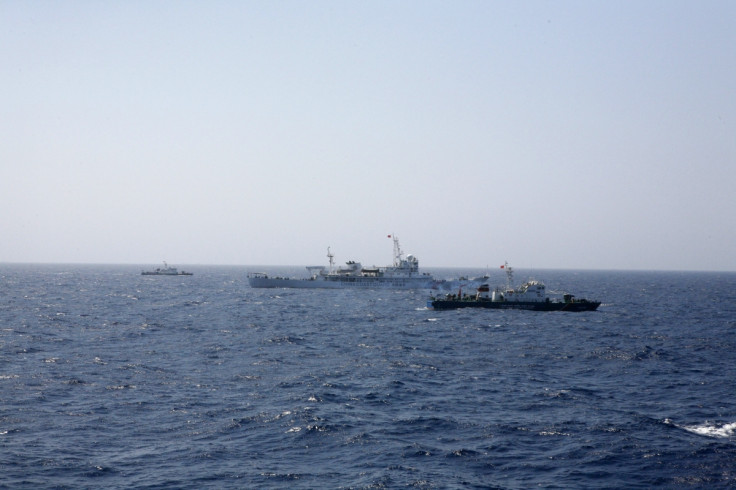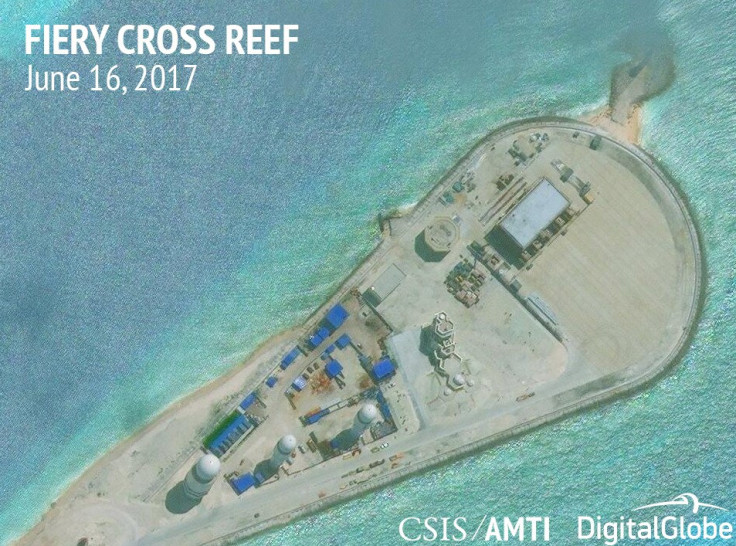Vietnam stops drilling for energy in South China Sea after Beijing threatens to attack bases
Beijing has reacted angrily to Hanoi's move of drilling for oil and gas in the disputed waterway.
Chinese threat to attack Vietnamese military bases is reported to have forced Hanoi to halt drilling for oil and gas within the "nine-dash line" in the disputed South China Sea, off its south-east coast.
Talisman-Vietnam, a subsidiary of Spain's Repsol Oil, began its gas-drilling expedition on 21 June in an area about 400km (250 miles) off the Vietnamese coast. The drilling was seen an apparent move by Hanoi to reinforce its claims against the bigger rival in the territorial dispute, China.
However, the company was ordered to leave the area, according to the BBC, which cited an unnamed source in the Vietnamese oil industry as saying.
The area of the sea where the drilling is taking place is reportedly the same place that China has leased out to a different company. Beijing reportedly bought rights to drill there through a Hong Kong-based listed company Brightoil. This company is thought to have two senior China's Communist Party members as its directors.
Vietnam calls the piece of the seabed as Block 136-03, while China refers it to as Wanan Bei 21.
The drilling began days after Repsol confirmed the existence of a major gas field in the hotly contested waters. The company's reports were corroborated even by a Vietnamese diplomatic source, the BBC reported on Monday (24 July).
The broadcaster said the company was asked to stop its drilling by the government in Hanoi after China, last week, reportedly threatened to attack Vietnamese bases in the Spratly Islands if the activities continued.
Tensions between Vietnam and China over drilling for oil in the mineral-rich sea date back to 2014 when coastguards from both the sides confronted each other in the South China Sea. A Chinese ship was even reported to have intentionally rammed into Vietnamese vessels in an area where Beijing had placed a massive oil rig, according to Hanoi.
Beijing's deployment of the first rig sparked a diplomatic standoff with Hanoi in 2014. The countries' navies clashed and anti-China riots erupted across Vietnam. Both sides have since met for talks with little progress, but the two countries have tried to avoid a confrontation.

The world's second-largest economy claims almost all of the South China Sea, including reefs and islands, which extend roughly 1,000 miles from its southern shores.
Vietnam, Brunei, Malaysia, Taiwan and the Philippines are also claimants of the territorial disputes in the South China Sea.
As tensions simmer on and off in the region, China on Monday (24 July) said it wanted to maintain peace and stability in the sea.
China would like to "maintain stability in the South China Sea, abiding by the terms that have been agreed on the Declaration of Conduct and Code of Conduct in near future", Reuters cited Chinese Foreign Minister Wang Yi as saying.
The communist nation is accused of severe militarization by carrying out reclamation work in the contested regions.

As part of its latest move to ascertain its rights and sovereignty to the islands in the South China Sea, Beijing has opened a state-of-the-art movie theatre on Woody Island, part of the Paracel group. The latest construction is apparently in a bid to help improve the quality of life for the 200 odd civilians and military personnel who are stationed on the tiny landmass.
© Copyright IBTimes 2025. All rights reserved.





















